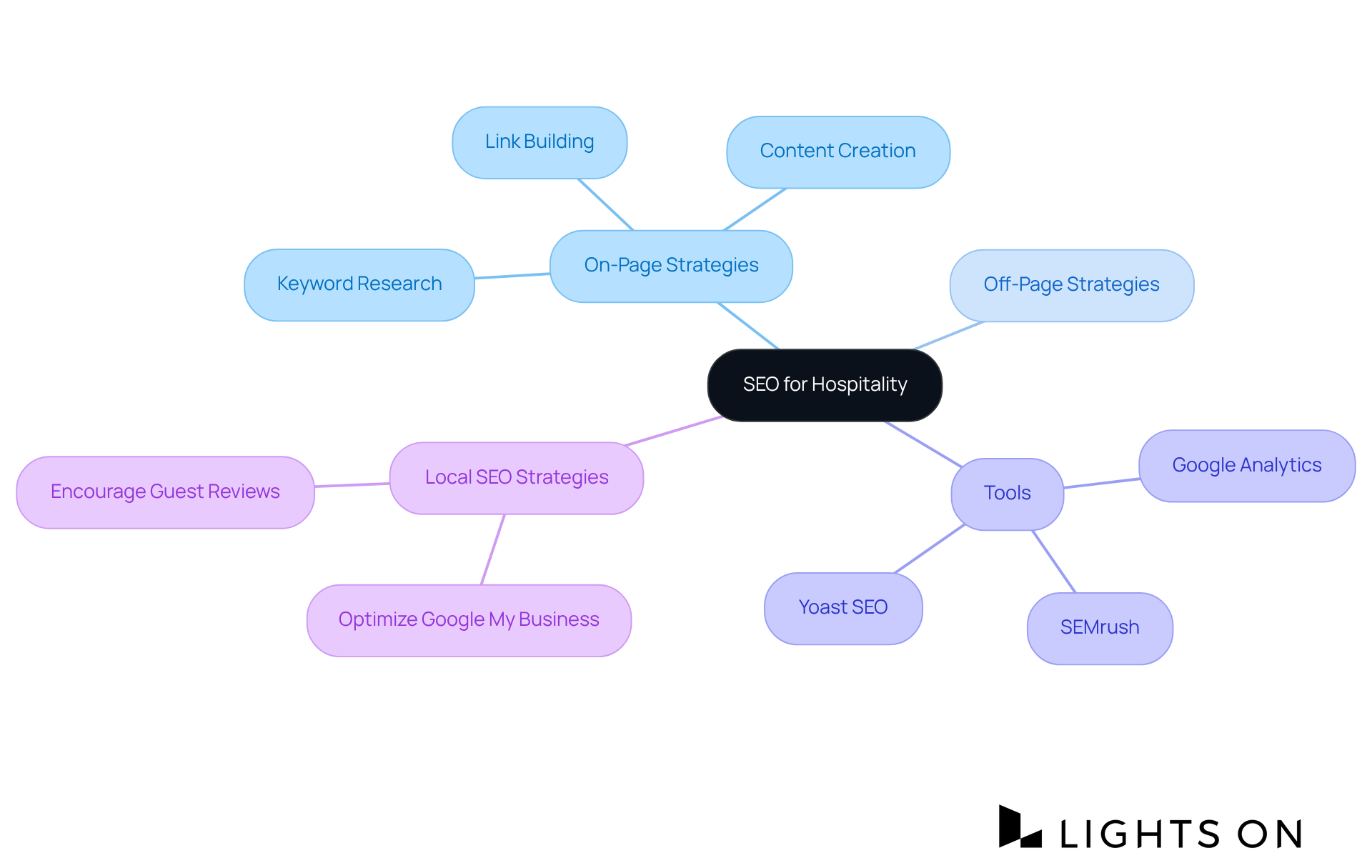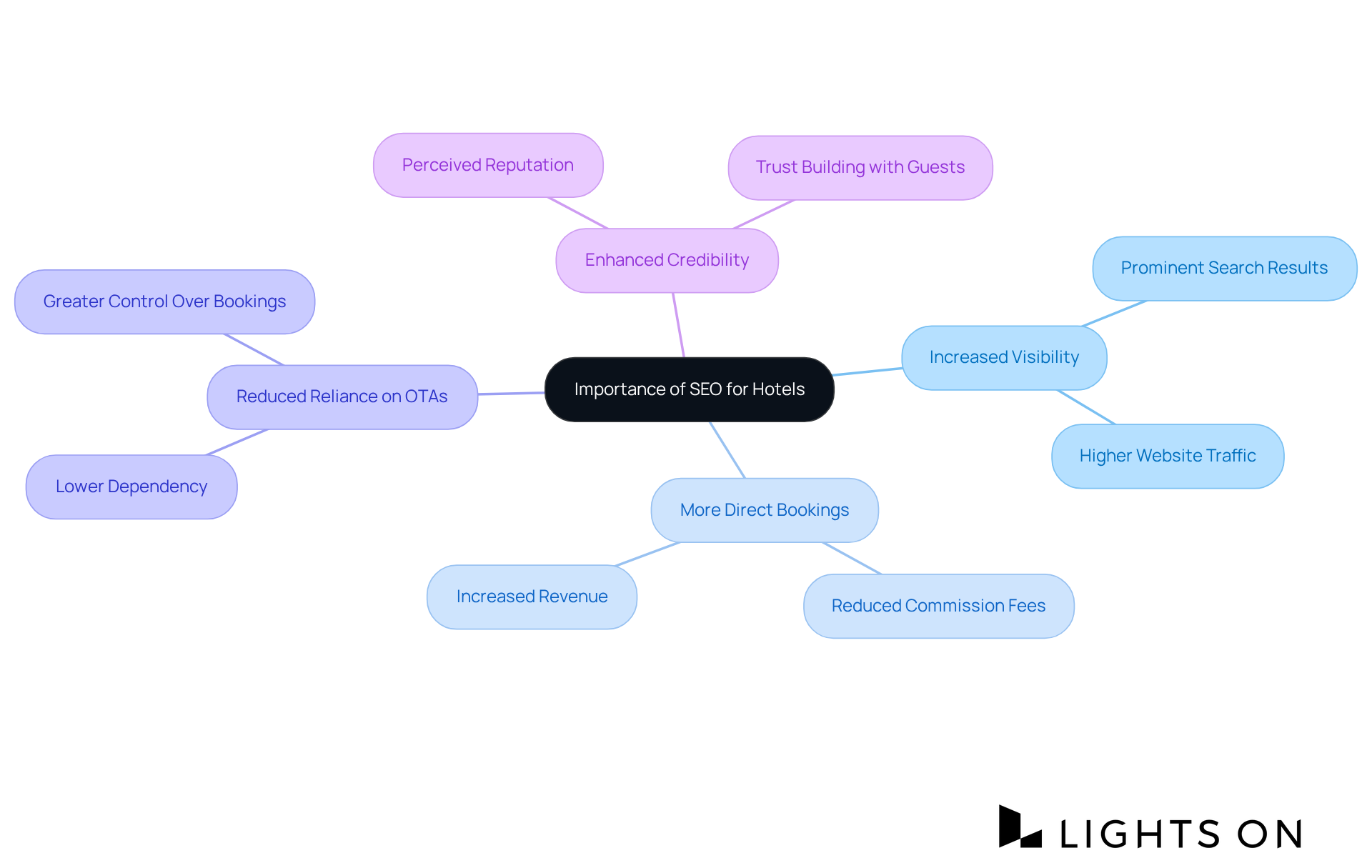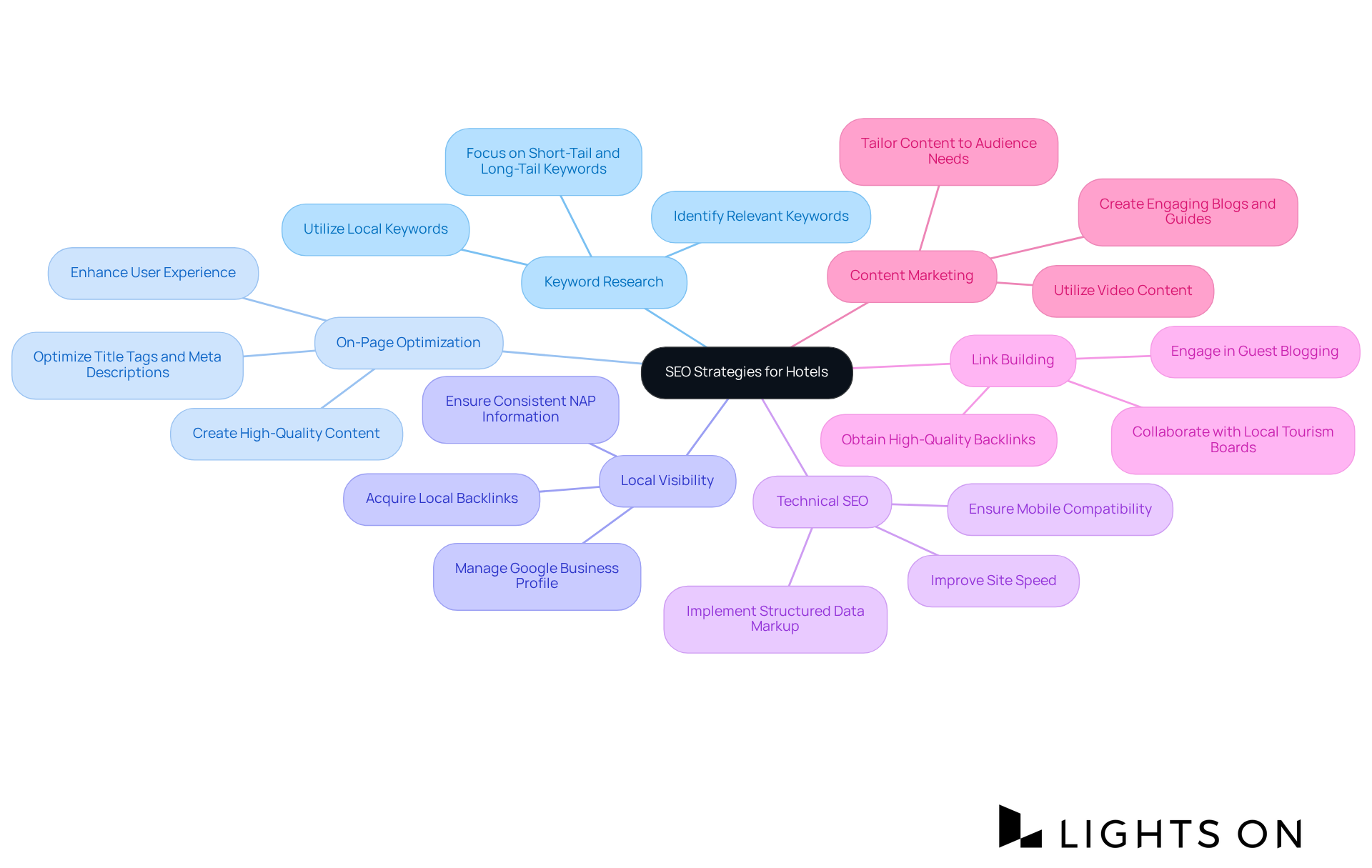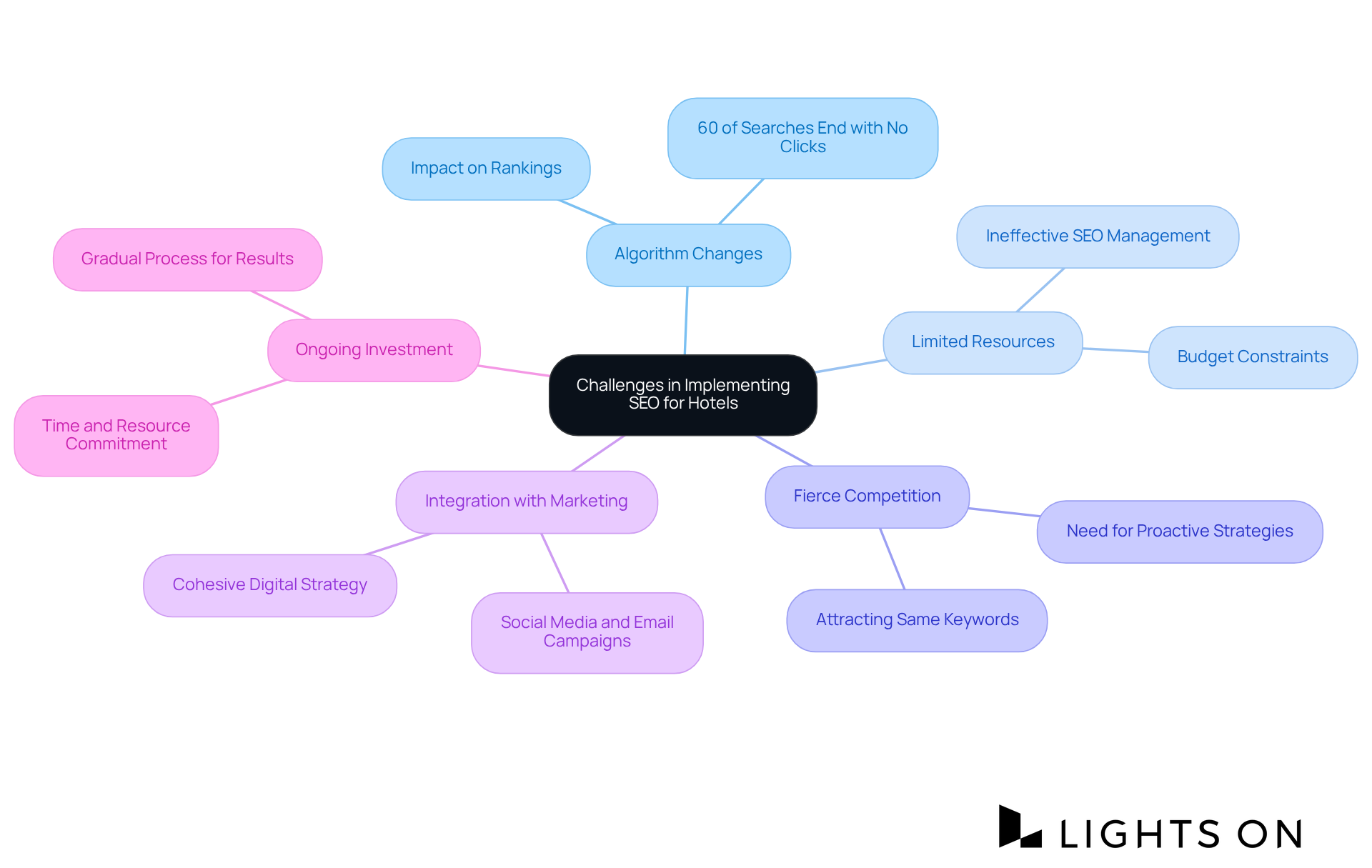The article underscores the critical role of SEO in the hospitality sector, detailing essential strategies for hotels aiming to boost their online visibility and attract potential guests. It asserts that proficient SEO not only elevates search engine rankings—resulting in increased direct bookings and diminished dependence on third-party platforms—but also fosters credibility with prospective guests by ensuring that accommodations are prominently displayed in search results.
Understanding the digital landscape is crucial for hospitality businesses aiming to capture the attention of potential guests. As travelers increasingly rely on search engines to plan their trips, the significance of effective Search Engine Optimization (SEO) cannot be overstated. This article explores essential strategies that can elevate a hotel's online presence, enhance visibility, and ultimately drive direct bookings. Furthermore, with the rapid evolution of algorithms and fierce competition in the hospitality sector, how can hotels ensure they stand out amidst the noise and attract the right audience?
SEO for hospitality is a strategic process aimed at enhancing an establishment's online presence, thereby improving its visibility in search engine results. This involves optimizing various components of a lodging establishment's website—such as content, structure, and technical features—to ensure a higher ranking for relevant search queries. The primary objective is to attract potential guests seeking accommodations or dining options, which ultimately increases and reduces reliance on third-party booking platforms.
Effective SEO for hospitality encompasses both on-page and off-page strategies, including:
All tailored specifically for the hospitality sector. Furthermore, to bolster hospitality marketing efforts, establishments can leverage tools like:
In addition, integrating local SEO strategies—such as optimizing Google My Business listings and encouraging guest reviews—can significantly enhance visibility and draw in more local guests.

SEO for hospitality is indispensable for accommodations, as it significantly influences their online presence and accessibility to potential guests. Given that most travelers initiate their booking journey through search engines, utilizing SEO for hospitality ensures that accommodations are prominently featured in search results. This enhanced visibility leads to increased website traffic, which can ultimately result in more , thereby diminishing reliance on online travel agencies (OTAs) that typically impose high commission fees.
Furthermore, effective SEO for hospitality strategies help accommodations build credibility and trust with prospective guests; higher-ranking websites are often perceived as more reputable. In a competitive landscape, harnessing the power of SEO for hospitality can be the decisive factor that distinguishes a property from being overlooked to becoming a favored choice among travelers.

Implementing effective SEO for hospitality is crucial for enhancing visibility and attracting potential guests.
Keyword Research: Identifying relevant keywords that potential guests use when searching for accommodations is foundational. This encompasses both general terms (e.g., 'hotels in [location]') and long-tail keywords (e.g., 'luxury beachfront hotels in [location]'). With 88.2% of all inquiries in the U.S. containing three or fewer words, concentrating on is essential to capture attention and drive traffic.
On-Page Optimization: This involves optimizing website elements such as title tags, meta descriptions, headers, and content to include targeted keywords. Producing high-quality, engaging material that addresses potential guests' inquiries can greatly enhance visibility rankings. Studies show that the typical highest-ranking result has a click-through rate (CTR) of 9.28%, emphasizing the significance of efficient on-page strategies that generate desire among users.
Since hotels depend significantly on local customers, implementing SEO for hospitality to optimize for local visibility is essential. This includes managing Google Business Profile, acquiring local backlinks, and ensuring consistent NAP (Name, Address, Phone Number) information across online directories. With 76% of individuals searching for something nearby on a smartphone visiting the establishment within one day, utilizing SEO for hospitality can lead to prompt bookings, urging action from potential guests.
Technical SEO: Ensuring that the website is technically sound is essential for SEO success. This involves enhancing site speed, mobile compatibility, and applying structured data markup to improve engine comprehension of the site's content. Mobile devices accounted for 60% of global online traffic in January 2024, making mobile optimization a priority that cannot be overlooked.
Link Building: Utilizing SEO for hospitality by obtaining high-quality backlinks from trustworthy sources can enhance a property's authority in the eyes of search engines. This can be achieved through partnerships, guest blogging, and engaging with local tourism boards. Research indicates that SEO for hospitality is essential, as the top-ranking page draws new backlinks at a rate of 5% to 14.5% each month, highlighting the significance of an active link-building approach that fosters credibility.
Content Marketing: Creating a content plan that includes blogs, guides, and videos can draw organic traffic and position the establishment as an authority in the local area. Content should be tailored to the interests and needs of potential guests, providing value beyond just promotional material. Engaging content can lead to increased shares and interactions, further enhancing visibility and reach, ultimately encouraging potential guests to choose your hotel.

Navigating the application of SEO for hospitality tactics poses several significant challenges. One of the foremost obstacles is the ever-evolving algorithms of online platforms, which can dramatically impact an establishment's ranking in a matter of hours. Recent statistics reveal that nearly 60% of searches in the United States conclude without any clicks on the results, underscoring the critical need to optimize for zero-click searches. Additionally, many accommodations grapple with limited resources and expertise, often leading to ineffective SEO management and suboptimal results.
The hospitality sector is characterized by fierce competition, as numerous hotels engage in SEO for hospitality to attract the same keywords and audience. This competitive landscape necessitates a proactive strategy to continually refine approaches and stay updated on the . Integrating SEO with other marketing initiatives, such as social media and email campaigns, adds another layer of complexity but is essential for a cohesive digital strategy.
Moreover, accommodations must be prepared to invest considerable time and resources into ongoing SEO efforts, as achieving visible results is a gradual process that demands sustained attention. Case studies illustrate that hotels prioritizing a comprehensive SEO for hospitality strategy can successfully navigate these challenges, resulting in enhanced visibility and increased bookings. For instance, a well-executed SEO overhaul focused on SEO for hospitality can lead to a significant uptick in user sessions and a reduction in bounce rates, clearly demonstrating the tangible benefits of a dedicated approach within the hospitality industry.

Implementing effective SEO strategies is vital for hospitality businesses aiming to enhance their online presence and attract potential guests. By optimizing various aspects of their websites, accommodations can significantly improve their visibility in search engine results, leading to increased direct bookings and reduced reliance on third-party platforms. This strategic approach not only helps hotels stand out in a competitive landscape but also builds credibility and trust with prospective guests.
Throughout the article, key strategies have been discussed, including:
Each of these components plays a crucial role in ensuring that hotels can effectively engage with their target audience and respond to their needs. The importance of local SEO cannot be overstated, as it directly impacts visibility and accessibility for nearby travelers. Furthermore, the challenges posed by evolving algorithms and fierce competition highlight the necessity for ongoing investment in SEO efforts.
In conclusion, embracing SEO for hospitality is not merely a trend but a fundamental requirement for success in the industry. As the landscape continues to evolve, staying informed about current trends and adapting strategies will be essential for hotels seeking to thrive. Establishments are encouraged to take actionable steps toward implementing an effective SEO strategy, recognizing that the effort invested today will yield significant returns in visibility, credibility, and ultimately, bookings.
What is SEO for hospitality?
SEO for hospitality is a strategic process designed to enhance an establishment's online presence, improving its visibility in search engine results by optimizing various components of its website.
What are the main objectives of SEO for hospitality?
The primary objectives are to attract potential guests seeking accommodations or dining options, increase direct bookings, and reduce reliance on third-party booking platforms.
What strategies are involved in effective SEO for hospitality?
Effective SEO for hospitality includes both on-page and off-page strategies, such as keyword research, content creation, and link building, all tailored specifically for the hospitality sector.
What tools can be used to support SEO efforts in hospitality?
Tools that can be leveraged include Google Analytics for tracking website performance, SEMrush for keyword research, and Yoast SEO for optimizing website content.
How can local SEO strategies benefit hospitality establishments?
Local SEO strategies, such as optimizing Google My Business listings and encouraging guest reviews, can significantly enhance visibility and attract more local guests.
Transform your group booking strategies with Lights On and watch your occupancy soar.